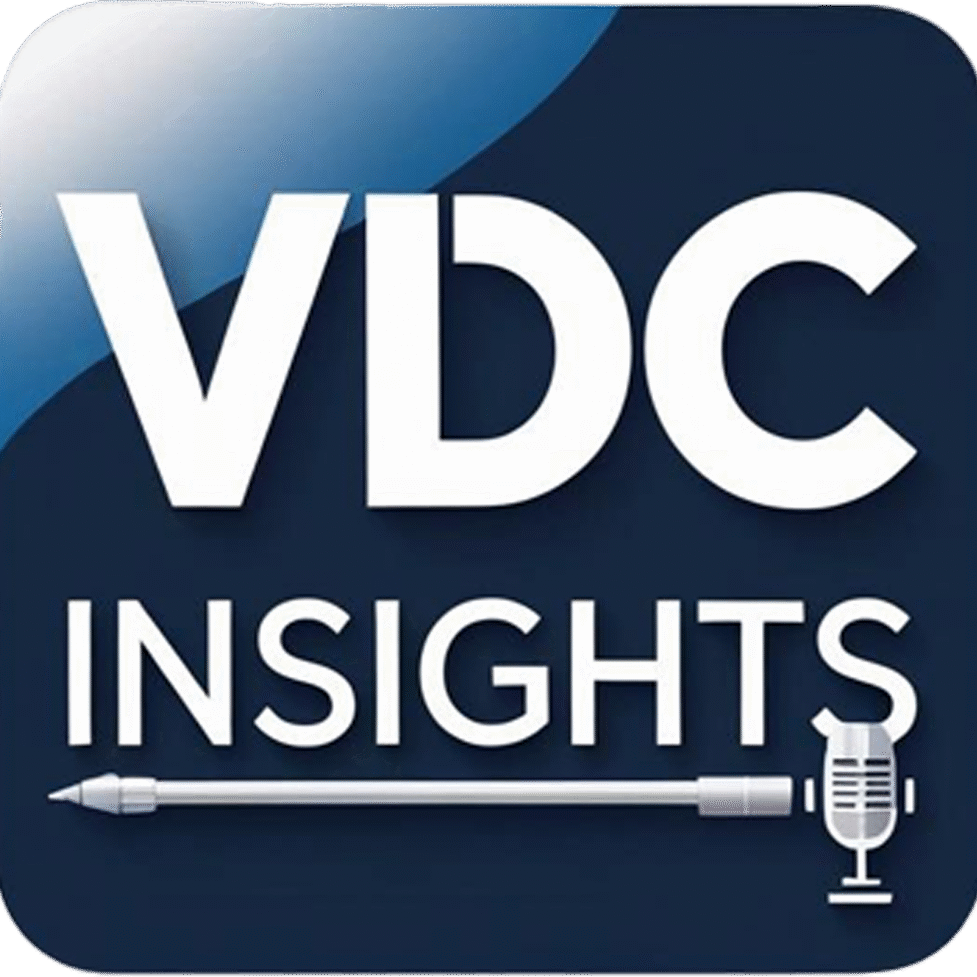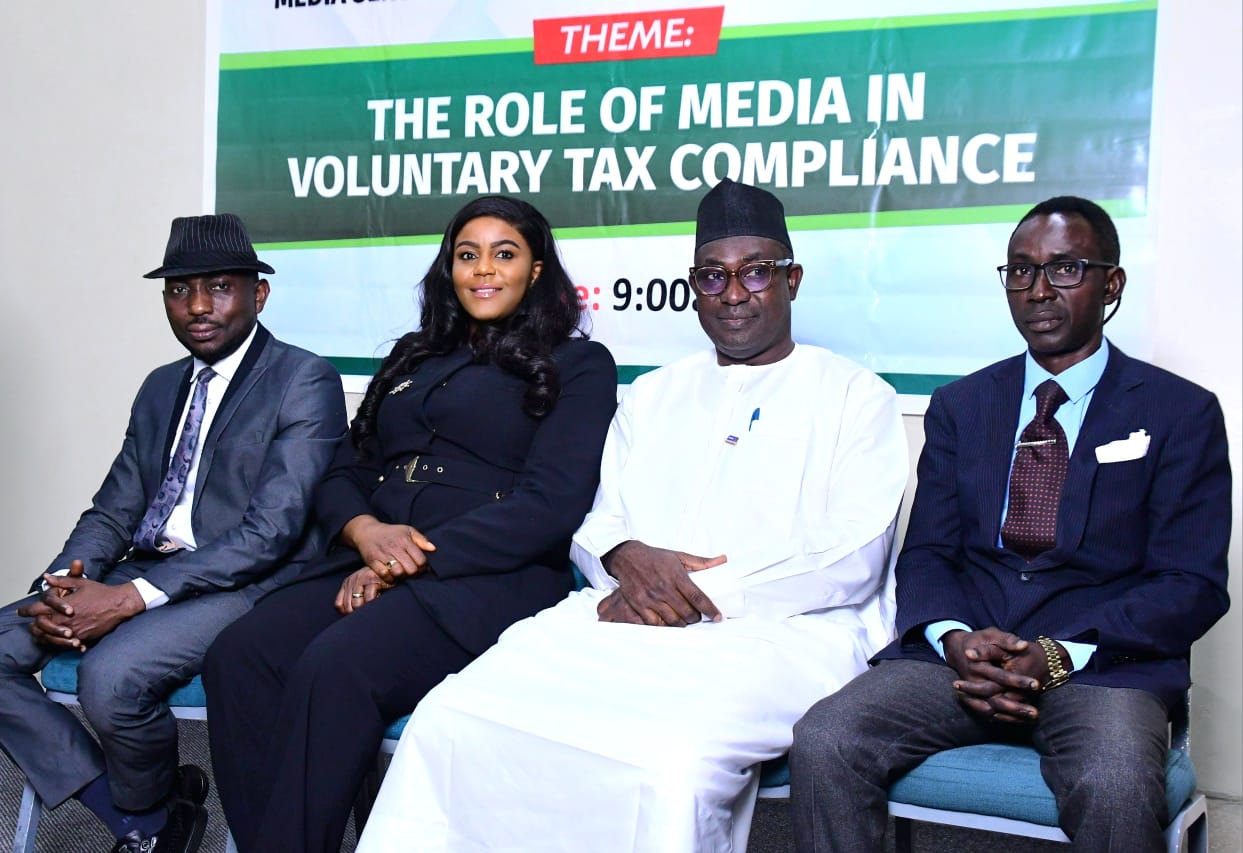COMMUNIQUÉ ISSUED AT THE END OF THE MEDIA SENSITIZATION PROGRAM ON THE ROLE OF MEDIA IN VOLUNTARY TAX COMPLIANCE HELD IN ABUJA IN JULY 2025
1.0 Introduction
The Media Sensitization Program on “The Role of Media in Voluntary Tax Compliance” was held in Abuja on the 9th of July 2025. The program brought together tax administrators, media professionals, scholars, and civil society actors to deliberate on the role of the media in enhancing public understanding of tax policy and reforms and fostering voluntary compliance among the Nigerian taxpayers.
In her welcome address, Arabinrin Aderonke Atoyebi, technical assistant (broadcast media) and convener of the event, warmly acknowledged the participants, noting that their presence underscored the importance of sustained collaboration between the media and tax authorities in advancing public engagement, awareness, and accountability.
She stressed that the North Central region, rich in diversity and resources yet grappling with critical developmental challenges, requires an informed and engaged media to amplify policy impact and build trust.
She emphasized that the goal of the program was not only to promote the work of the organization but also to provide clarity on policies, initiatives, and the data that informs them, enabling the media to communicate tax matters more meaningfully to the public.
She encouraged open dialogue, critical questioning, and deeper collaboration, affirming that the media serves as a vital bridge between the people and decision-makers.
The opening session featured two technical presentations by Mr. Bright Igbinosa, Head of the Tax Reform Analysis Unit, Fiscal and Tax Reform Division, and Professor Iroye Samuel Opeyemi, Professor of Strategic Studies and Conflict Resolution at the National Open University of Nigeria.
Their presentations set the tone for a highly engaging session on how effective communication, data, and trust-building are central to Nigeria’s tax reform journey.
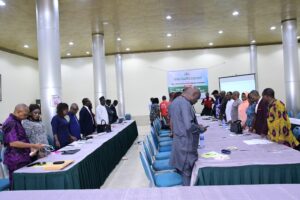
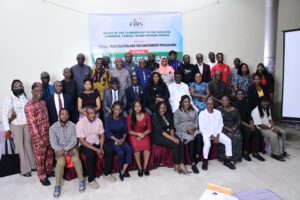
2.0 Objectives of the Sensitization Program
The Media Sensitization Program was convened with the following objectives:
i. To create awareness about ongoing tax reforms and policy directions in Nigeria.
ii. To highlight the strategic role of the media in communicating tax policy and fostering voluntary compliance.
iii. To promote the use of data-driven campaigns in reaching and segmenting taxpayers.
iv. To educate media professionals on the importance of simplifying tax concepts for the public.
v. To encourage collaboration between tax authorities, reform institutions, and the media in promoting tax morale.
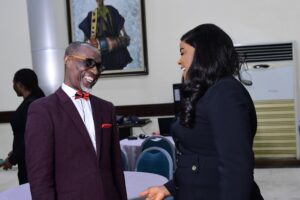
3.0 Presentations and Discussions
A. Bridging the Gap Between Tax Policy and the People
Presented by Bright Igbinosa, this session focused on
Some components of Nigeria’s ongoing tax reforms include harmonization of tax laws, modernization of the tax system, and simplification of legal frameworks.
Benefits of the reform include increased revenue mobilization, enhanced ease of doing business, and strengthened institutions.
The critical role of the media in demystifying tax policies, improving public awareness, and countering misinformation.
The importance of taxpayer education in enhancing compliance, reducing enforcement burden, and building trust in government.
B. The Role of Data-Driven Media Campaigns in Improving Voluntary Tax Compliance
Presented by Prof. Iroye Samuel Opeyemi, this session emphasized
The use of data analytics to segment taxpayers by behavior, geography, and compliance history.
Predictive modeling to anticipate default behavior and guide preemptive outreach.
Real-time monitoring of campaign effectiveness through digital dashboards.
Integration of campaign platforms with tax databases to personalize outreach.
Leveraging geospatial data to localize campaigns, especially in low-compliance areas.
Automation of messaging using SMS, email, and social media for wider and more efficient outreach.
The importance of digital transparency and secure platforms in building trust and reducing tax evasion.
C. Special Remarks by Prof. Nduka Anthony Otiono
Professor Nduka Anthony Otiono, a rare hybrid of journalist, creative writer, and scholar from Carleton University, emphasized the critical role of data-driven media in shaping public perception.
He noted that the media are the translators of tax policy, and without their professional and data-informed mediation, tax reforms risk being misunderstood or ignored.
He urged practitioners to deploy credible data to tell stories that bridge the gap between technical policy language and public understanding.
4.0 Remarks by the Director, Communication and Liaison Department
In his closing address, the Director of the Communication and Liaison Department delivered a powerful reflection on the theme of the program:
He emphasized that data is essential for every truth claim in the media. However, data should not be reduced to statistics alone; both quantitative and qualitative data must be consulted, analyzed, and applied responsibly.
He declared that “fact is sacred, and data is sacred,” reminding participants that data now controls the global information system and must be handled with care and accuracy.
He identified tax language as often frosty, complex, and inaccessible, and recommended a granular communication approach that breaks down tax terms into simpler language that resonates with everyday Nigerians.
Scaling tax messages into layman’s terms will make them more productive and relatable.
On the issue of trust deficit, he noted that while citizens often mistrust government due to perceived inefficiencies, the few things government does right are also under-reported.
The media must balance critique with reportage of progress and reforms.
He concluded by reaffirming that the media and tax authorities are partners in national development.
He urged media professionals to consult data, seek clarifications, and maintain ethical standards before publishing tax-related information.
5.0 Key Highlights and Resolutions
After robust discussions, the following key takeaways and resolutions emerged:
a. Strategic Use of the Media
Participants resolved that the media should be deliberately engaged as a policy tool to simplify complex tax information, correct misinformation, and advocate for tax compliance as a civic duty.
b. Mainstreaming Data in Communication
The use of quantitative and qualitative data was highlighted as essential for shaping factual, compelling narratives.
Participants agreed that “data is sacred” and must form the foundation for all media truth claims. The need to consult and clarify data before publication was strongly emphasized.
c. Simplification of Tax Language
Tax concepts are often perceived as frosty and complex. To make communication more effective, it was recommended that tax authorities adopt a granular, relatable style, breaking down tax policies into language the average citizen can easily understand.
d. Addressing Trust Deficit
Participants recognized the trust gap between citizens and government, driven by perceptions of poor service delivery.
It was observed that while the government may not be doing enough, what it does is often underreported. Media must therefore highlight positive efforts and reforms, helping to rebuild institutional trust.
e. Data-Driven Campaigns
Stakeholders supported the adoption of data tools to segment audiences, predict compliance behavior, track campaign impact, and automate taxpayer communication.
f. Localized, Inclusive Messaging
Participants advocated for campaigns tailored to specific regions using geospatial analysis, particularly in low-compliance areas.
Inclusion of marginalized groups and local languages was also encouraged.
g. Sustained Public Enlightenment
It was recommended that tax authorities continue engaging the media through regular briefings, town halls, and feedback loops to ensure continuous public sensitization.
h. Collaboration and Ethical Reporting.
The program ended with a collective call for ongoing collaboration between media and tax institutions.
Journalists were encouraged to seek clarification before publishing tax-related stories to avoid misinformation and preserve public trust.
6.0 Conclusion
Participants commended the Federal Inland Revenue Service and the Office of the TA Broadcast, FIRS, for organizing a timely and impactful program.
They reaffirmed their shared commitment to collaborative, transparent, and data-driven communication in support of national revenue goals and citizen engagement.
“Tax is not a burden, but a bridge.” — Prof. Iroye Samuel Opeyemi.
“When there’s transparency and fairness in tax policy, compliance becomes a civic duty, not a burden.” — Bright Igbinosa
“Fact is sacred. Data is sacred. Data now controls the information system.” — Director, Communication and Liaison Department
“The media must translate tax policy into a message the people can understand.” — Prof. Nduka Anthony Otiono
